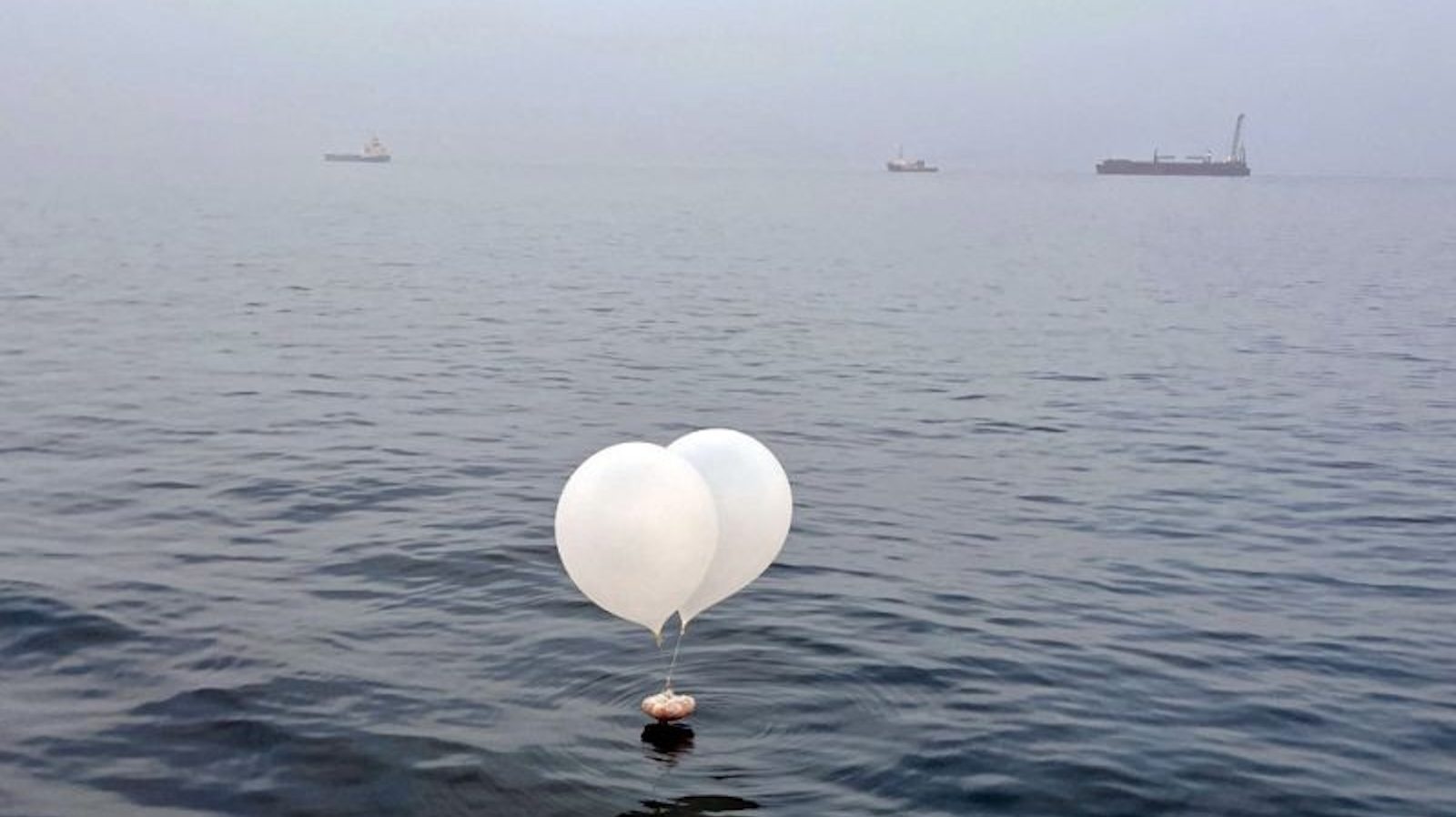On the evening of the 1st, an unexpected incident occurred in the parking lot of the SBS Mokdong office building in Seoul. According to reports from the Joint Chiefs of Staff, North Korea resumed the distribution of 'filth balloons' filled with waste toward South Korea. This was confirmed when a loud popping sound was heard, leading to the discovery of a mess of trash, including paper, cardboard, thread, cloth, and plastic bottles.
It was clear from the examination of the trash that it originated from North Korea. Among the debris were cigarette butts labeled 'Ryomyong', a brand known to be used by North Korean executives. Reports indicate that waste balloons had previously landed in other regions, including Gyeongnam, highlighting the far-reaching consequences of these provocations.
The initial announcement regarding North Korea's waste balloon campaign came from Vice Minister of National Defense Kim Yo-jong. She indicated that their actions were a direct response to the anti-North Korea leaflets distributed by defectors in South Korea. Kim Yo-jong referred to these waste balloons as a 'gift of sincerity' and a means to demonstrate the effort required to clean up such garbage.
South Korea has not taken these provocations lightly. As of Sunday, South Korean officials reported finding around 720 trash balloons scattered across the country. In response, the government is considering resuming loudspeaker broadcasts that were previously halted under the 2018 inter-Korean military agreement. Additionally, South Korea's military maintains a posture of full readiness to monitor further North Korean activities.
North Korea's Vice Defense Minister, Kim Kang Il, later announced a temporary halt to the balloon campaign, having claimed that 15 tons of garbage had already been sent to South Korea using 3,500 different devices. However, he warned that any resumption of anti-North Korea activities would lead to even more aggressive waste dumping retaliations.
Despite the rising tensions, no harmful substances have been found among the debris, though some balloons previously contained used toilet paper. South Korea is coordinating efforts with the police, local governments, the Ministry of Security, and the United Nations Command to manage and safely recover the distributed waste.
The ongoing tensions are a stark reminder of the unresolved conflict dating back to the Korean War, ending in an armistice in 1953. Relations between North and South Korea have largely remained strained, with periodic provocations and responses disrupting the fragile peace. North Korea's recent actions underline its desperate measures and highlight the overall isolation and stringent controls within the nation, as well as the resulting international implications.
- Foreign materials, including films and books, remain strictly controlled in North Korea, allowing only a few state-sanctioned exceptions. Those caught with foreign contraband often face severe punishments.
- Earlier in 2024, rare images surfaced, released by a South Korean investigative group, showing North Korean teenagers sentenced to hard labor for consuming and sharing South Korean dramas.
- The aggressive stance of North Korea, including the deployment of waste balloons, serves as a grim reminder of the country's continued isolation and tight grip over its citizens.
- In previous years, tentative openings in North Korea's regime allowed for limited cultural exchange, primarily with China. However, as diplomatic relations have deteriorated, North Korea has reverted to its stringent measures.





